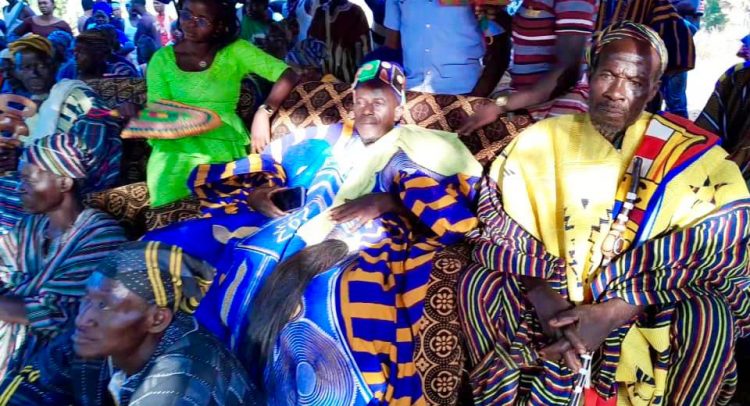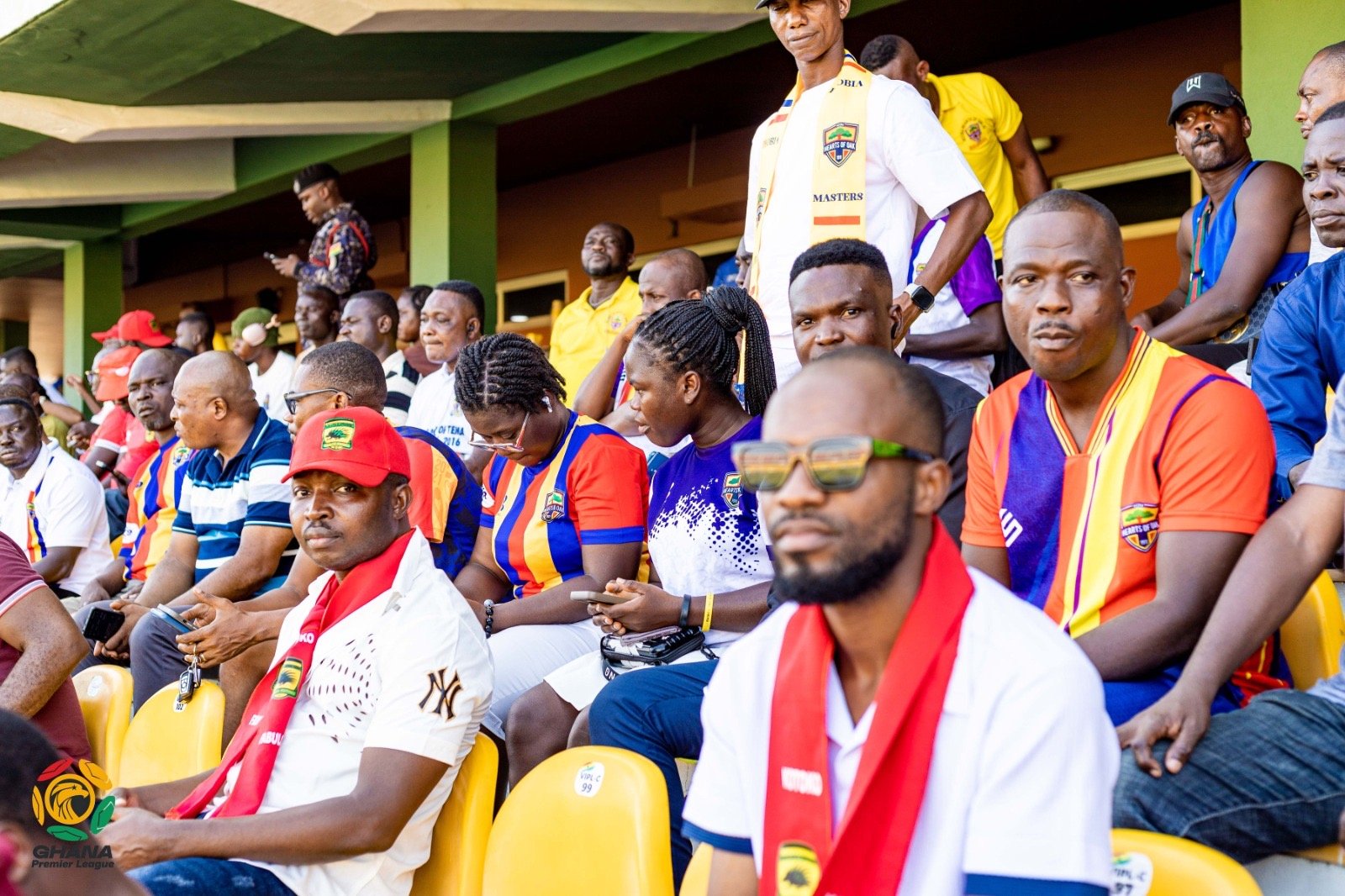
By Alfred Yayra KPODO
…The Hogbetsotso festival remains one of Ghana’s most celebrated traditional events, symbolising freedom, unity and cultural pride among the Anlo people. Yet, despite its grandeur and historical depth, questions linger about accountability, development outcomes and how the festival can better serve the socio-economic progress of the Anlo State. This reflective piece explores the missed opportunities and calls for a more visionary, inclusive and professionally organised celebration that matches the greatness of its heritage.
Hogbetsotsoza is the festival celebrated by the 36 states of the Anlo people to commemorate their freedom and sojourn from Notsie, in the northern part of Togo.

Like most other traditional festivals, it is held annually to foster unity among the 15 clans of the Anlo people, to provide a platform for leaders and their subjects to reflect on challenges confronting them and to deliberate on solutions as a collective. Among other reasons for the annual event is for leaders to account for their stewardship, initiate developmental projects and create a convivial atmosphere that invites people from all walks of life to visit and learn about Anlo culture and traditions.
There’s no denying that Hogbetsotsoza is the single biggest event that brings together Anlo natives at home and abroad. For those who have been away for years, it affords them the opportunity to rekindle memories of their roots; and for first timers, it offers a rare chance to reconnect, celebrate and have fun. Yet, over the years, the festival appears to have slipped into autopilot; repeating the same patterns with little innovation, and I will attempt here to clarify and support the observation.
Given that the festival tells the story of the Anlo people, the leaders have done so well to preserve and uphold its traditional significance through sacred rites and rituals performed by the chiefs and elders to thank the gods for their protection and blessings over the year under review. However, this essay is not a critique of the ritual or spiritual aspects; rather, it focuses on the socio-economic dimensions and the visible gaps that could be improved for greater impact and progress.
Lack of visible development outcomes from the festival
I stand to be corrected, but I have not seen any monument or project that can be directly attributed to proceeds from Hogbetsotsoza over the years. This then raises the legitimate question: what happens to the donations and contributions made toward the festival each year?
Whether long term or short term, why can’t there be a roundtable discussion involving stakeholders – subject-matter experts, government representatives, investors, corporate Ghana and private individuals to deliberate on how to harness the enormous economic potential that exists within the Anlo State?
Weak accountability
Accountability appears to be missing in the whole scheme of things. Perhaps the funds are used to rent canopies, chairs, produce souvenirs, host dignitaries and pay honoraria to deserving individuals. But without transparent reporting, people will natural fill the information gap with their own narratives; and rightly so, that sentiment seems widespread among locals.
The need for a broader planning committee
The planning committee should be expanded to include professionals and accomplished Anlos from various fields. Restricting decision-making to clan heads and members of the Traditional Council limits creativity and efficiency. The organisers need lobbyists, budget and finance experts, actuaries, event planners and communication professionals to elevate the festival’s planning and execution. Hogbetsotsoza has all it takes to become a signature event for the Anlos, celebrated nationally and internationally; a thing of beauty to further define the Anlos.
Absence of a secretariat?
It is unclear if there is a permanent office or secretariat for the festival, where people could walk in to transact business related to the festival. If none exists, then establishing one should be a matter of urgency. Where can anyone go to research, read and learn about Hogbetsotsoza? Where’s the documentation tracing its evolution over the years? At present, it seems individuals are serving as the living archives of the event’s history. A functional secretariat would centralise information, manage partnerships and preserve institutional memory.

Vendor regulation and internal revenue
Every year, I see quite a number of businesses and brands set up stands and pavilions at the festival grounds and its periphery, which prompts an important question: how do these vendors gain entry and who accredits them, or do they just simply seize the opportunity to make quick profits from revelers and leave without any formal engagement from the organisers of the festival or contributing to the community?

This area represents a low-hanging fruit for internal revenue generation. I believe that a well-coordinated system run jointly by the festival secretariat and the district assembly could accredit all vendors, collect reasonable fees and formally acknowledge their participation during the grand durbar could be a win-win situation for all involved.
The Mama Hogbe pageant – A missed spark
One of the recurring low points of the festivities is the poor organisation of the Mama Hogbe Pageant Show. Frankly, some senior high schools organise better pageant shows than what we see each year. The Volta Region is known for its strikingly beautiful and intelligent women; an image that should be showcased with pride and professionalism. Yet, the pageant often feels disconnected from the main festival because it receives little publicity just like the Hogbetsotso itself, attract minimal to no sponsorship, poorly timed and mostly not patronised.
Why hold the pageant show late on Saturday evening after the grand durbar, when most dignitaries and revelers have already departed and the festival has formally closed? Ideally, the Mama Hogbe show should be one of the major programmes, culminating no later than Thursday, so that the crowned queen and her runners-up can be presented to the Awoamefia, Togbi Sri and the crowd at the durbar for public recognition.
The quality of prizes, sometimes limited to an electric iron and a piece of cloth, also undermines the prestige of the competition. No one wants to attend days of dress rehearsals, sew cloths, put in efforts at practising speeches and learning performances only to be awarded with an air fryer. It is so uninspiring and casts a dent on the whole festival.
And lastly on this issue, the organisers should stop hosting the show in makeshift venues such as the district assembly yards or a radio station premises, moving them to reputable hotels or event centres along the Anlo coast through partnerships. For a people renowned for foresight and excellence, we deserve better.
Lack of competitive sports and youth engagement
Another missing element is the absence of competitive sports programme among the 36 states or even selected zones. A small entrance fee of GH?5 could easily fund such events while promoting camaraderie and healthy competition.

The current planning seems to lack the drive and innovation required to engage the youth and keep the community energised through the week. It’s about time the organisers of the festival thought about giving revelers and the community an experience that stays with them long after the festival ends. The solution is not complex because there are many tested and proven templates which already exist; no need to reinvent the wheel. What is needed is the will and commitment to make it happen.
Conclusion
The Hogbetsotso festival is an incredible legacy of immense cultural depth and potential; one that holds social and economic power if harnessed right. It can serve not only as a time of remembrance and thanksgiving but also as a catalyst for economic empowerment, cultural education and civic pride. But for that to happen, we need embrace accountability, transparency, creativity, courage to rethink the way things are done and professionalise the planning by opening the festival to structured partnerships and community participation.
For a visionary people whose ancestors saw far beyond the walls of Notsie, it is time to channel that same foresight into how we celebrate and manage Hogbetsotsoza. The festival must not just tell the story of escape, it must also tell the story of progress and this can only be realised by marrying tradition with innovation.
>>>the writer is an IT Professional, Certified Data Protection Supervisor and ISO 27001:2022 Lead Auditor based in Anloga, Volta Region. When he is not engaged in professional work, he writes on culture, governance and social development, exploring how tradition and innovation can work together to shape Ghana’s collective future.
The post Hogbetsotsoza at a crossroads: Tradition, accountability and the unfulfilled economic promise of Anlo’s grand festival appeared first on The Business & Financial Times.
Read Full Story
























Facebook
Twitter
Pinterest
Instagram
Google+
YouTube
LinkedIn
RSS